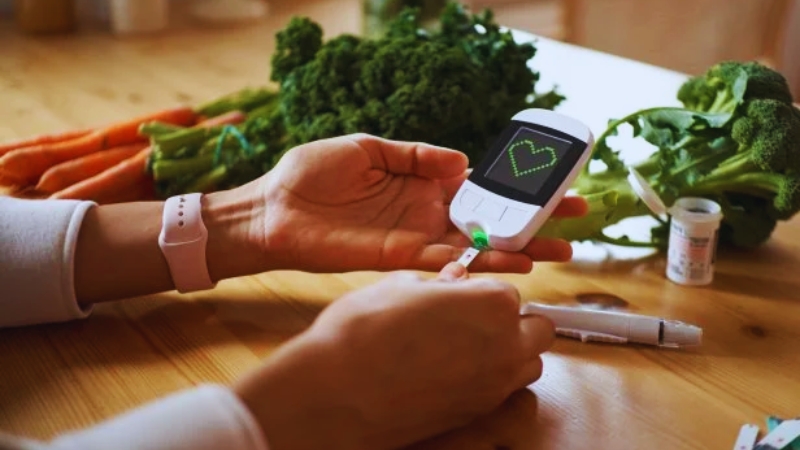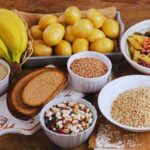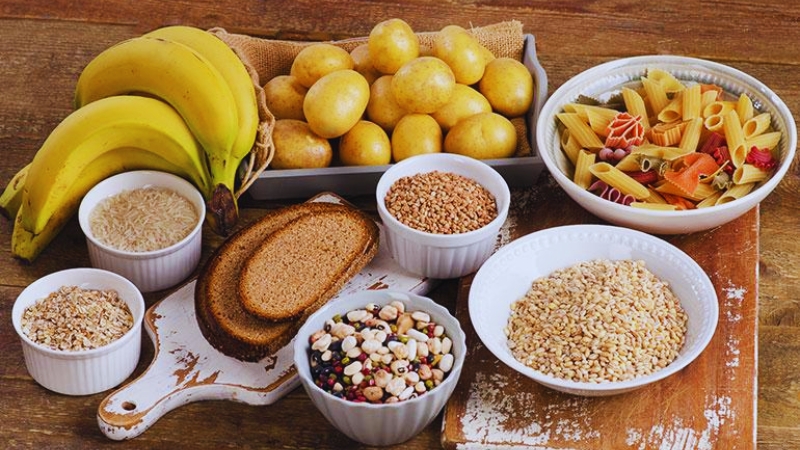Managing diabetes often comes with an overwhelming amount of nutrition advice—some of it helpful, and much of it outdated or simply incorrect. These misconceptions can lead to unnecessary restrictions or poor choices that hinder blood sugar control and overall health. To set the record straight, here are ten of the most common diabetes nutrition myths, debunked by registered dietitians.
Myth 1: People with Diabetes Can’t Eat Sugar
One of the most widespread misconceptions is that sugar must be completely avoided. In reality, people with diabetes can include small amounts of sugar in their diets as long as it’s accounted for within their carbohydrate intake. What matters most is the total amount of carbohydrates consumed and how they affect blood glucose levels, not sugar alone.
Myth 2: Carbohydrates Are Bad for Diabetes
Carbohydrates often get unfairly blamed, but not all carbs are created equal. Whole-grain breads, legumes, fruits, and vegetables are nutrient-rich carbohydrate sources that can support stable blood sugar levels when portioned properly. Instead of eliminating carbs entirely, it’s more effective to focus on choosing high-fiber, minimally processed varieties.
Myth 3: A High-Protein Diet Is the Best Approach
Some people believe that shifting to a high-protein diet is the key to diabetes control. While protein can help with satiety and blood sugar management, excessive intake—especially from red or processed meats—can increase the risk of kidney stress and heart disease. A balanced plate with moderate amounts of protein, carbohydrates, and healthy fats is usually more beneficial in the long term.
Myth 4: Fruit Is Too Sugary and Should Be Avoided
Many people assume that fruit is off-limits due to its natural sugar content. However, whole fruits provide fiber, vitamins, and antioxidants that can support overall health. The key is portion control and choosing fresh or frozen fruits over juices or dried fruits, which can spike blood sugar more rapidly.
Myth 5: Artificial Sweeteners Are Completely Safe
Artificial sweeteners are often used as a substitute for sugar, but their long-term effects are still being studied. While they may help reduce carbohydrate intake, some studies suggest they can affect gut health and cravings for sweet foods. Dietitians generally recommend using them in moderation and focusing more on reducing the overall desire for highly sweetened foods.
Myth 6: You Need to Eat “Diabetic” Foods
Foods labeled “diabetic-friendly” or “sugar-free” are often marketed to people with diabetes, but they’re not necessarily healthier. These products can still be high in calories, saturated fats, and artificial ingredients. A more effective approach is to eat whole, minimally processed foods and learn to read nutrition labels rather than relying on marketing claims.
Myth 7: Skipping Meals Helps Lower Blood Sugar
Some believe that skipping meals, especially breakfast, can help manage blood sugar levels. In truth, doing so can lead to dangerous fluctuations in blood glucose and increase the risk of overeating later in the day. Consistent meal timing supports better blood sugar control and helps keep hunger in check.
Myth 8: All Fats Are Bad for Diabetes
Fats have long been vilified, but not all fats are harmful. In fact, unsaturated fats—like those found in avocados, nuts, seeds, and olive oil—can improve heart health and even help with blood sugar regulation. It’s important to limit saturated and trans fats, but incorporating healthy fats can enhance meals and support overall wellness.
Myth 9: Insulin Use Means You Failed
There’s a common stigma that needing insulin indicates failure in diabetes management. In reality, diabetes is a progressive condition, and insulin may become necessary despite best efforts with diet and lifestyle. Using insulin can be a proactive step to protect long-term health, not a sign of defeat.
Myth 10: Once You’re Diagnosed, Your Diet Has to Be Completely Bland
Some people fear their favorite foods are forever off-limits after a diabetes diagnosis. The truth is, no food is completely forbidden. With mindful portion sizes, smart swaps, and balanced meal planning, most people with diabetes can still enjoy a wide variety of delicious foods while maintaining good control of their blood sugar.
Final Thoughts
Diabetes nutrition doesn’t have to be restrictive, joyless, or confusing. Dispelling these myths helps create a more balanced and empowering approach to eating. With the guidance of a registered dietitian and a focus on moderation, variety, and whole foods, people with diabetes can enjoy their meals while protecting their health and improving their quality of life.









